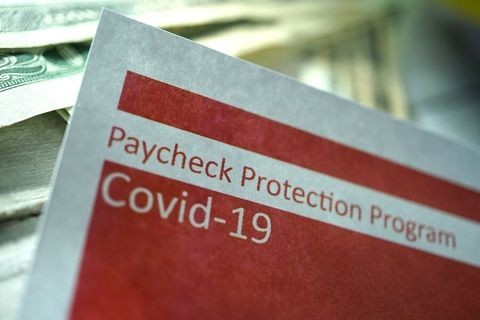Jason M. Crawford
Overview
When facing government investigations or high stakes civil litigation, clients trust Jason Crawford to evaluate allegations, identify risks, and formulate strategies to achieve the appropriate resolution. Jason advises and advocates for government contractors, health care organizations, and companies from regulated industries in matters involving civil, criminal, and administrative enforcement, with a particular focus on the False Claims Act (FCA).
Career & Education
- Department of Justice
Trial Attorney, Civil Division, Fraud Section, 2020–2023
U.S. Attorney’s Office for the District of Columbia, 2020–2023
- Department of Justice
- Georgetown University Law Center, J.D.
- University of Oxford, Brasenose College, M.A./B.A.
- Georgetown University, B.A.
- District of Columbia
- Virginia
- Supreme Court of the United States
- U.S. Court of Appeals for the Fourth Circuit
- U.S. Court of Federal Claims
- U.S. District Court for the District of Columbia
- U.S. District Court for the Eastern District of Michigan
- U.S. District Court for the Southern District of Illinois
- U.S. District Court for the Eastern District of Virginia
- U.S. District Court for the Western District of Virginia
- U.S. District Court for the District of Connecticut
Jason's Insights
Publication | 03.31.25
Health System Settles FCA Case Over PPP Loan 03.31.25 Report on Medicare Compliance
Client Alert | 5 min read | 03.07.25
Recent Deluge of Paycheck Protection Program False Claims Act Settlements
Podcast | 02.03.25
Let's Talk FCA: Evolving Disclosure Considerations for Contractors
Blog Post | 01.29.25
The Evolving Landscape of Disclosure Considerations for Government Contractors
Representative Matters
False Claims Act Defense
- (4th Cir. and D.S.C.) Represented United Airlines in United States ex rel. Grant v. United Airlines Inc., 912 F.3d 190 (4th Cir. 2018), a qui tam whistleblower lawsuit alleging False Claims Act violations involving a $1.4 billion Air Force contract for the maintenance of C-17 aircraft engines. The district court granted the motion to dismiss with prejudice, and the Fourth Circuit affirmed the dismissal of the substantive FCA counts.
- (C.D. Cal.) Defended a national managed care organization in a qui tam suit based on the fraudulent inducement and implied certification theories of liability. The court granted our motion to dismiss.
- (N.D. Ga.) Defended a subcontractor in False Claims Act litigation where the Department of Justice intervened in case alleging that the subcontractor had provided defective material on a government construction project. The case settled on terms favorable to the defendant.
- (D.N.J.) Represented a drug manufacturer in a qui tam whistleblower lawsuit alleging False Claims Act violations involving allegations of fraudulent pharmaceutical testing methods. The case was dismissed.
- (D.D.C.) Defended an individual in a False Claims Act suit brought by the Department of Justice alleging that the individual misrepresented the designated entity status of her company. After two years of motions practice and discovery, the counts against our client were voluntarily dismissed.
- (E.D. Pa.) Successfully litigated a motion to dismiss a qui tam complaint filed against construction company.
- (S.D. Ill.) Represented a national partnership of physicians in a qui tam suit where the relator alleged that the defendant was “upcoding” when billing CMS. The case was dismissed.
- (W.D.N.Y.) Represented a construction company in False Claims Act suit where the Department of Justice alleged that the company misrepresented its status as a Service-Disabled Veteran-Owned Small Business. The case settled on terms favorable to the defendant.
- (W.D. Va.) Represented manufacturer in qui tam suit alleging that the manufacturer had misrepresented the performance of products sold to federal and state governments. The case was dismissed.
- (E.D. Mich.) Represented large defense contractor in False Claims Act suit brought by the Department of Justice. The case resulted in a favorable settlement and release.
- (M.D. Fla.) Defended hospital operator against qui tam suit based on hospital’s alleged early discharge of Medicare patients. The case was dismissed.
- (S.D. Tex.) Defended family-owned staffing companies in a qui tam suit alleging that defendants were ineligible for pandemic relief loans received through the Paycheck Protection Program. The court granted our motion for summary judgment.
Investigations
- (W.D.N.C.) Represented company in parallel civil and criminal investigations in case involving allegations of small business fraud. The civil FCA matter was settled on favorable terms and no criminal charges were filed against the company.
- (E.D. Cal.) Advised a managed care organization on strategic response to a Civil Investigative Demand served on the organization in connection with a False Claims Act investigation. Persuaded the government not to pursue FCA action.
- Conducted large-scale internal investigation for a Fortune 100 company involving, inter alia, mandatory disclosure and False Claims Act considerations.
- (E.D. Va.) Performed internal investigation following the execution of a search warrant at the headquarters of government contractor and counseled company in matter involving parallel civil and criminal investigations.
- Conducted internal investigation regarding a manufacturer’s alleged shipment of non-conforming goods.
- Managed response to a Defense Criminal Investigative Service subpoena in connection with False Claims Act investigation involving allegations of defective pricing on government contract. Persuaded Department of Justice not to pursue the action.
- Conducted internal investigation into potential violations of the Anti-Kickback Act.
- (E.D. Pa.) Represented a major food supplier in a False Claims Act investigation relating to federal Prime Vendor contracts for the provision of food in Afghanistan. Persuaded the Department of Justice to decline intervention and the relator voluntarily dismissed the qui tam suit.
Civil Litigation and Disputes
- (E.D. Va.) Represented government contractor in action brought under Defend Trade Secrets Act against former employee. The court granted our motion for a preliminary injunction requiring the former employee to return company documents.
- (D.C. Super. Ct.) Defended government contractor in action alleging fraud. The court granted our motion to dismiss.
- (ASBCA) Represented government contractor at trial in which the Armed Services Board of Contract Appeals denied the Army’s defective pricing claim against the contractor.
- (D.D.C.) Defended a publicly chartered travel corporation in connection with False Claims Act retaliation action alleging fraud. The case was settled for a nominal amount and dismissed.
Jason's Insights
Publication | 03.31.25
Health System Settles FCA Case Over PPP Loan 03.31.25 Report on Medicare Compliance
Client Alert | 5 min read | 03.07.25
Recent Deluge of Paycheck Protection Program False Claims Act Settlements
Podcast | 02.03.25
Let's Talk FCA: Evolving Disclosure Considerations for Contractors
Blog Post | 01.29.25
The Evolving Landscape of Disclosure Considerations for Government Contractors
Insights
Health System Settles FCA Case Over PPP Loan 03.31.25 Report on Medicare Compliance
|03.31.25
Health Care Compliance Association
Government Contracts: When It Comes to Qui Tam Cases, It’s Time to Buckle Your Seat Belt
|01.10.24
Litigation Forecast 2024
Gotta Have (Good) Faith-FCA Risks Arising From Small Business Subcontracting
|09.18.19
The Government Contractor
Authors:
“What the Construction Industry Needs to Know About the Connecticut And Federal False Claims Acts”
|07.17.23
Final Rule for Federal Contractors Still Raises Serious Concerns, Lawyers Say
|09.12.16
Bloomberg BNA
The Evolving Landscape of Disclosure Considerations for Government Contractors
|01.29.25
Crowell & Moring’s Government Contracts Legal Forum
- |
03.01.23
Crowell & Moring's International Trade Law
FCA Suit Brought Against Importer for Evading Customs Duties
|04.30.19
Crowell & Moring's International Trade Law
Be Prepared for Increased Duty Evasion Claims Against Importers under the False Claims Act
|01.31.18
Crowell & Moring's International Trade Law
- |
02.01.17
Crowell & Moring's Government Contracts Legal Forum
- |
01.18.17
Crowell & Moring's Government Contracts Legal Forum
Feature Comment: The Top FCA Developments Of 2016 For Government Contractors
|01.11.17
The Government Contractor
- |
09.29.16
Crowell & Moring's Government Contracts Legal Forum
Practices
Industries
Jason's Insights
Publication | 03.31.25
Health System Settles FCA Case Over PPP Loan 03.31.25 Report on Medicare Compliance
Client Alert | 5 min read | 03.07.25
Recent Deluge of Paycheck Protection Program False Claims Act Settlements
Podcast | 02.03.25
Let's Talk FCA: Evolving Disclosure Considerations for Contractors
Blog Post | 01.29.25
The Evolving Landscape of Disclosure Considerations for Government Contractors





